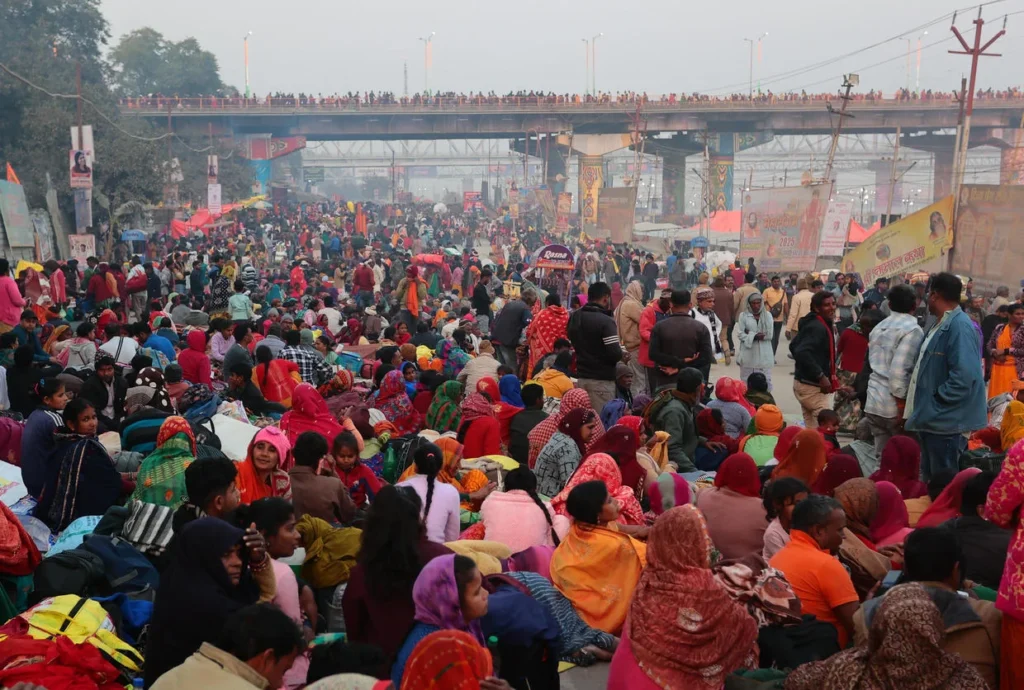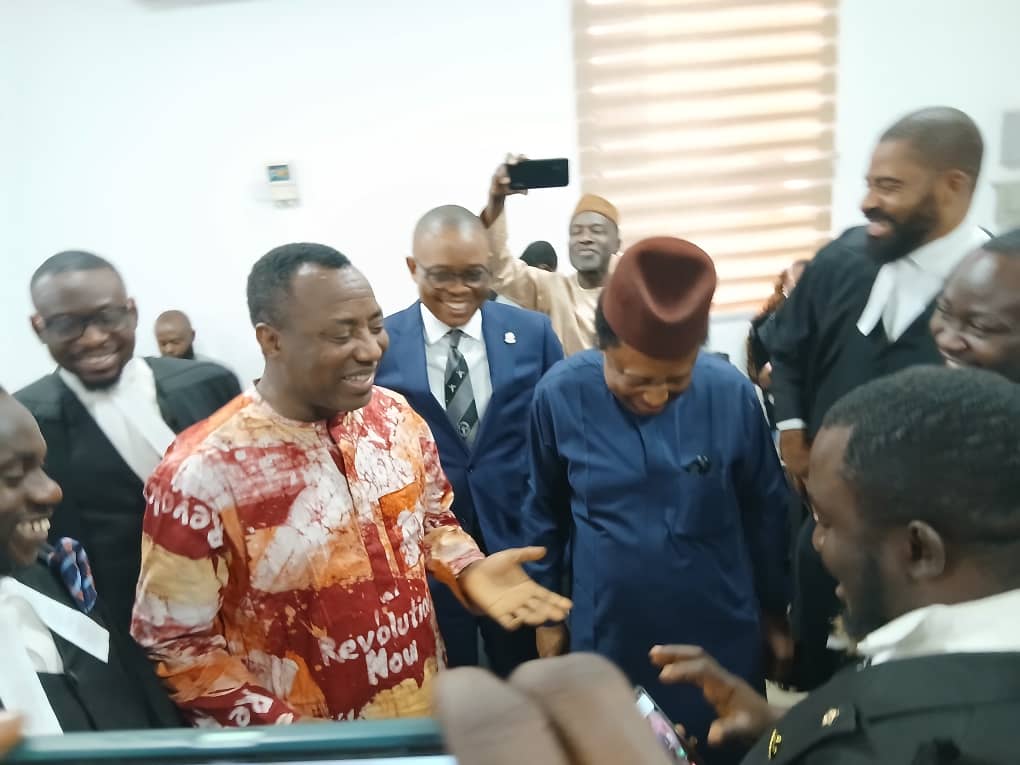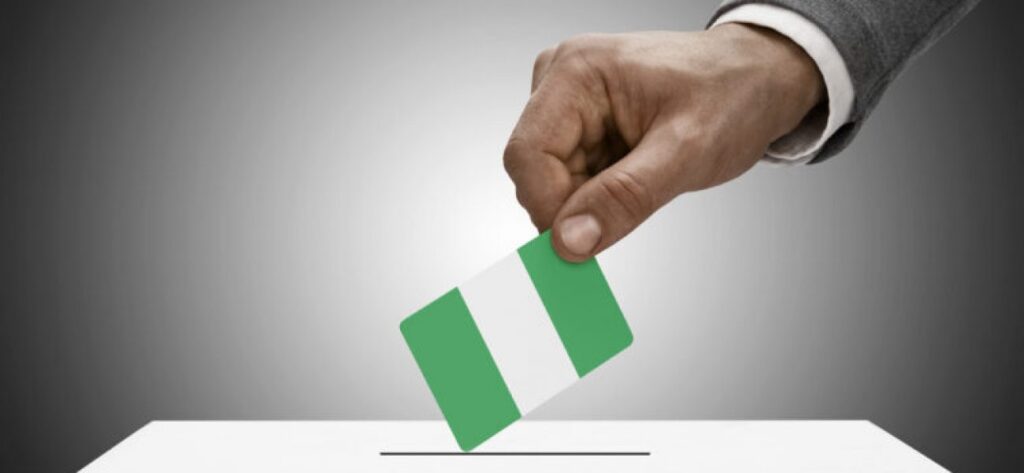White House revokes spending freeze in face of legal challenges

President Donald Trump’s administration pulled back a proposed spending freeze that threatened to disrupt hundreds of billions of dollars in aid to U.S. programmes, a White House official said on Wednesday. The first major domestic policy reversal of the Republican president’s new term came after one federal judge had temporarily blocked the freeze and before another judge was due to hear a separate legal challenge. The proposal had thrown the federal government into chaos and disrupted payments to medical and child-care providers. It says the test flight over the Mojave Desert marked the first time any privately funded plane has hit the landmark speed. Separately, the White House said Trump will target pro-Palestinian student protesters for deportation in a sign that he is broadening his immigration crackdown to include people based on their political views. The White House said Trump will sign an executive order that would revoke student visas for college students and other non-citizens who took part in anti-Israel protests that roiled college campuses last year. The first major domestic policy reversal of the Republican president’s new term came after one federal judge had temporarily blocked the freeze and before another judge was due to hear a separate legal challenge. The proposal had thrown the federal government into chaos and disrupted payments to medical and child-care providers. But supersonic travel hasn’t been on offer to airline passengers for some two decades. That is since the Anglo-French. Separately, the White House said Trump will target pro-Palestinian student protesters for deportation in a sign that he is broadening his immigration crackdown to include people based on their political views. The White House said Trump will sign an executive order that would revoke student visas for college students and other non-citizens who took part in anti-Israel protests that roiled college campuses last year. “We will find you and we will deport you,” Trump said in a statement. Trump has been a vocal supporter of Israel during its war with Hamas. Trump’s immigration crackdown until now has focused on deporting migrants who don’t have a legal basis to stay in the United States. This order, if implemented, would target those who are in the country legally. It was the latest boundary-pushing move for a president who has moved quickly to assert power since taking office on Jan. 20. He has halted wide swaths of foreign aid, pardoned supporters who attacked U.S. Capitol police and offered buyouts to thin the ranks of civil-service workers.
20 killed in South Sudan plane crash

A small aircraft carrying oil workers crashed in South Sudan’s Unity State, killing 20 people on Wednesday, a state official has confirmed. The plane went down at the Unity oilfield airport while en route to the capital, Juba, according to Unity State’s Information Minister, Gatwech Bipal. Bipal stated that the passengers were employees of the Greater Pioneer Operating Company (GPOC), a consortium that includes China National Petroleum Corporation and state-owned Nile Petroleum Corporation. Among the casualties were two Chinese nationals and one Indian. Initially, media reports placed the death toll at 18, but Bipal later confirmed that two survivors had succumbed to their injuries, leaving just one survivor. The cause of the crash remains unclear. South Sudan has experienced several air disasters in recent years. In September 2018, a small aircraft carrying passengers from Juba to Yirol crashed, killing at least 19 people. Similarly, in 2015, a Russian-built cargo plane crashed shortly after takeoff from Juba’s airport, killing dozens.
Police kill five kidnappers on Lagos-Ibadan Expressway

Operatives of the Ogun State Police Command, on Wednesday, neutralised five suspected kidnappers operating on the Lagos-Ibadan highway. Disclosing the incident in a statement, the Police Public Relations Officer of the Command, CSP Omolola Odutola, said the hoodlums were engaged in their hideout while the Police engaged them. Odutola said the Area Commander, Sagamu, last Saturday, received a distress call from commuters travelling on the Sagamu -Ijebu Ode highway, that there was an armed robbery attack, near Ilishan Remo, area of the State. The PPRO said a crack team of officers was immediately deployed to the scene of the incident, saying the officers upon arrival noticed that a group of unidentified gunmen had set up a roadblock using an articulated truck, indiscriminately opening fire on unarmed passengers, causing widespread panic. She said three commuters, Bolaji Bilesanmi ‘m’, 65yrs; Olasunkanmi Idowu ‘m’ 50yrs and Mohammed Salisu ‘m’ (age unknown) were abducted into the forest from two vehicles, a Honda Pilot with registration number LAGOS EKY113GZ and a Honda Accord Car marked LAGOS KJA13QFA. She explained that the State Police Commissioner, CP Lanre Ogunlowo, directed his men to locate the hideout of the hoodlums. The kidnappers upon sighting the Police were said to have opened fire while the Police engaged them, leaving five fatally injured and others escaping with gun wounds. Odutola said one AK-47 rifle; 10 rounds of 5.6mm calibre ammunition; ₦5.2 million (suspected to be proceeds of crime) and three mobile phones were recovered from the scene. While the three kidnapped victims were rescued unhurt by the Police.The PPRO said efforts are on to arrest injured members of the syndicate.
Stampede at India’s mega-festival leaves 30 people dead

At least 30 people in India were trampled to death, with many more injured after a surging crowd spilled out of a police cordon and barrelled into bystanders during a stampede at the world’s largest religious gathering on Wednesday. Deadly crowd incidents are a frequent occurrence at Indian religious festivals, including the Kumbh Mela, which attracts tens of millions of devotees every 12 years to the northern city of Prayagraj. As pilgrims rushed to participate in a sacred day of ritual bathing, people sleeping and sitting on the ground near the rivers told AFP they were trampled by huge swells of devotees coming towards them in the darkness. “The entire crowd fell on top of me, trampling me as it moved forward,” pilgrim Renu Devi, 48, told AFP. “When the crowd surged, elderly people and women were crushed, and no one came forward to help.” Rescue teams carrying victims from the accident site weaved through piles of clothes, shoes and other discarded belongings. Police were seen carrying stretchers bearing the bodies of victims draped with thick blankets. “Thirty devotees have unfortunately died,” senior police officer Vaibhav Krishna told reporters during an evening news conference at the festival. “Ninety injured were taken to the hospital.” Krishna’s briefing came nearly 18 hours after the stampede and was the first official death toll given by authorities. Festivities had otherwise been allowed to continue almost as normal during the day, with millions still trekking to the riverbanks to immerse themselves in the water. Prime Minister Narendra Modi called the stampede “extremely sad” and offered his “deepest condolences” to relatives of those killed, adding his wishes “for the speedy recovery of all injured.” Dozens of relatives were anxiously waiting for news outside a large tent serving as a purpose-built hospital for the festival near the disaster site. The six-week Kumbh Mela is the single biggest milestone on the Hindu religious calendar. Wednesday marks one of the holiest days in the festival, when saffron-clad holy men lead millions in a sin-cleansing ritual of bathing at the confluence of the Ganges and Yamuna rivers in tandem with a planetary alignment in the Solar System. Devotees Gather near Sangam, at the confluence of the Ganga, Yamuna and mythological Saraswati Rivers, to take a holy dip on the eve of “Mauni Amavasya,” the second Royal Bathing day of the Kumbh Mela Hindu religious festival, Jan. 28, 2025, in Allahabad, India. Ritesh Shukla/Getty Officials had attempted to divert crowds away from the disaster site, instructing them to bathe at other locations. “We humbly request all devotees do not come to the main bathing spot,” said one festival staffer, his voice crackling through his megaphone. “Please cooperate with security personnel.” But even as news of the stampede spread, crowds pushed through cordons to move towards the river, shrugging off aggressive orders from police to turn back. Officials from the Uttar Pradesh state government, responsible for staging the festival, said millions had participated in the ritual bathing through the day. Indian opposition leader Rahul Gandhi blamed the disaster on poor crowd control that prioritised the comfort of distinguished visitors. “Mismanagement and the administration’s special focus on VIP movement instead of common devotees are responsible for this tragic incident,” he wrote on social media. Railway police superintendent Ashtabhuja Singh told AFP that special train services taking pilgrims to Prayagraj were still running, after earlier reports that they had been halted due to crowding in the city. “My family got scared, so we’re leaving,” attendee Sanjay Nishad told AFP. The Kumbh Mela is rooted in a mythological Hindu battle between deities and demons for control of a pitcher containing the nectar of immortality. Organizers have likened the scale of this year’s festival to a temporary country, forecasting up to 400 million pilgrims would visit before the final day on February 26. Police this year installed hundreds of cameras at the festival site and on roads leading to the sprawling encampment, mounted on poles and a fleet of overhead drones. The surveillance network feeds into a sophisticated command and control centre meant to alert staff if sections of the crowd get so concentrated that they pose a safety threat. “If you see advertisements it seems like the government is providing world class facilities,” university student Ruchi Bharti told AFP not far from the riverbank. “But this stampede proved that was all a lie.” More than 400 people died after they were trampled or drowned at the Kumbh Mela on a single day of the festival in 1954, one of the largest tolls in a crowd-related disaster globally. Another 36 people were crushed to death in 2013, the last time the festival was staged in Prayagraj.
Ferdinand wants Manchester United to sign Osimhen

Former England International, Rio Ferdinand has urged Manchester United to sign Nigerian striker, Victor Osimhen to bail the team out of its goalscoring problems. Himself being a Manchester United legend, Ferdinand posited that the on-loan Super Eagles player would be a perfect mentor for struggling forwards, Rasmus Hojlund and Joshua Zirkzee, and help end the goal drought that has plagued the team this term. Speaking on his YouTube channel, Ferdinand pinpointed the 2023 CAF African Footballer of The Year as the perfect candidate to not only score goals for United but also guide Hojlund, who has struggled to make an impact since his £70m move. Ferdinand said, “I’d be going to get Osimhen now if we can do it from a financial standpoint. Get him on loan now! Guarantees you someone who can get on the end of things, scores goals, experienced, done it at the top level.” The former England defender’s comments came after another disappointing performance from Hojlund in United’s narrow 1-0 victory over Fulham at Craven Cottage, where the Danish striker was substituted after 55 minutes.Osimhen, who is currently on loan at Galatasaray from Napoli, has been in scintillating form, scoring 16 goals and providing five assists in 12 appearances for the Turkish giants. The Nigeria international’s stock has risen considerably following a stellar 2022/23 season with Napoli, where he scored 26 goals to win the Serie A Golden Boot and help the Partenopei claim their first league title in 33 years. Ferdinand believes United’s current striker situation is particularly concerning, with neither Hojlund nor his backup Joshua Zirkzee showing the required quality to lead the line. “I just feel like because Hojlund was £70m-odd we’re expecting the finished article. Unfortunately (he’s not). He’s a young striker but normally a striker of that age comes in and learns off someone. He’s got nobody to learn off,” the six-time Premier League winner added. United’s interest in Osimhen comes as new manager Ruben Amorim looks to bolster his attacking options, with the Red Devils managing just 17 goals in 12 league matches this season. The Old Trafford outfit had previously shown interest in the 24-year-old striker before his €70m move to Napoli in 2020/21, where he has since scored 57 goals in 95 appearances. Earlier reports suggested United and Napoli were considering a potential swap deal involving Marcus Rashford, but there has been little progress on that front. Meanwhile, Dusan Vlahovic is expected to leave Juventus at the end of the season, and according to Gazzetta, Joshua Zikrzee and Victor Osimhen are among the possible replacements of the Serbia international at the Allianz Stadium. Therefore, the Serie A giants are already monitoring the market for possible Vlahovic replacements.According to Gazzetta, Joshua Zirkzee and Osimhen are the Bianconeri’s primary targets.
JAMB suspends admission to study law in KWASU, 7 other varsities

The Joint Admissions and Matriculation Board (JAMB) has suspended admissions for the Law programme in Kwara State University (KWASU) and seven other universities. JAMB Spokesperson, Dr Fabian Benjamin stated this in a statement on Wednesday. He said the decision was taken over the suspension of the Bachelor of Laws (LL.B) programme by the Council of Legal Education (CLE) for the 2025/2026 academic session at the universities. The affected universities include; He said the suspension of the Law programme at the Nigeria Police Academy, Wudil, Kano State, will last for two academic sessions: specifically, the 2025/2026 and 2026/2027 sessions. “As a result, JAMB will not approve any admissions for candidates seeking to enroll in the Law programme at the aforementioned universities for the 2025/2026 academic session. Furthermore, the ban on registration for the Law programme at the Nigerian Police Academy will extend into the 2026/2027 academic session,” he added. Meanwhile, JAM earlier announced the registration, and examination dates for the 2025 Unified Tertiary Matriculation Examination (UTME). The tertiary institutions’ entrance examination board disclosed that prospective candidates can begin their registration on January 31, 2025, with the process set to end on March 5, 2025. Ishaq Oloyede, the registrar/chief executive officer at JAMB who disclosed this during a meeting with media executives in Lagos, revealed that the 2025 UTME will commence on March 8, 2025, with a mock examination scheduled for February 23, 2025, for candidates who opt to participate. The board reiterates that to ensure a smooth process of the 2025 registration, all candidates must meet the mandatory requirements, including providing their National Identification Number (NIN). According to JAMB, “The NIN will be used to create a profile code, a prerequisite for the registration process. Candidates are required to send their NIN via text to either 55019 or 66019 to generate the code. “For those opting to include the mock examination as part of their UTME registration, a fee of ₦8,200 will apply. Candidates who wish to sit only for the UTME without the mock will pay ₦7,200, while those registering for Direct Entry (DE) will pay ₦5,700.”Oloyede explained that the mock examination is designed to allow candidates to familiarise themselves with the Computer-Based Testing (CBT) format and enhance their preparation.
Court adjourns ruling on Sowore’s bail application to Thursday

The Federal High Court in Abuja has adjourned its ruling on the bail application of former presidential candidate and activist Omoyele Sowore until Thursday, January 31, 2025. Sowore, who is facing 17 counts of cybercrime, is accused by the Nigerian Police Force of using his verified X handle to post a tweet referring to the Inspector General of Police as “illegal IGP Kayode Egbetokun.” The police have claimed that the statement was false and intended to incite public disorder. Justice Musa Liman made the decision after hearing arguments from Sowore’s counsel, Marshall Abubakar, and the prosecution’s representative, Udey Jonathan. Sowore, who has pleaded not guilty to all the charges, was present in court for the proceedings. Initially scheduled for 3 p.m., the ruling was postponed earlier in the day. Upon the resumed hearing, Abubakar urged the court to grant bail on the most lenient terms, stressing that Sowore’s application was supported by a 16-paragraph affidavit, which was sworn by Sunday Agabi. Abubakar further argued that the court had the discretion to grant bail regardless of the prosecution’s objections. “We ask you, my noble lord, to release the applicant on bail in the most liberal terms possible, pending the hearing and determination of the trial,” Abubakar stated. However, prosecution counsel Udey Jonathan opposed the application, submitting a counter-affidavit deposed by one Friday Ameh, a police intelligence officer. Jonathan argued that bail should not be granted easily and, if it were, should be accompanied by stringent terms to ensure Sowore’s appearance for trial, including the submission of his international passport. “My lord, we urge the honourable court to dismiss the bail application,” Jonathan said. After hearing both sides, Justice Liman adjourned the ruling to Thursday at 1 p.m. Until then, Sowore will remain in police custody. The outcome of the bail application will be closely monitored, as Sowore remains a prominent figure in Nigeria’s activism and political landscape.
2027 Polls: Frontline presidential contenders to watch and issues that will dominate contest

In consonance with the provisions of the 1999 Constitution (as amended), Nigerian voters will in two years’ time -2027 – go to the polls to elect a president who will steer the country’s affairs for another four years. However, while the exact date for the 2027 presidential election remains unknown, yet the political landscape is already upbeat with behind-the-scenes negotiations, alignments and horse-trading among key contenders. Also, major political parties are not left out in the rave of the moment, as they are re-strategizing for the fierce electoral contest. In this report, The New Daily Prime examines the 2027 polls, the chances of presidential polls’ contenders, their proposed policies, and the key factors that will shape the election. Bola Tinubu Bola Ahmed Tinubu, the incumbent Nigeria’s President elected under the platform of the All Progressives Congress (APC) is most likely to contest the 2027 presidential election for a second term. As in the 2023 presidential election, what has traditionally been a two-horse race between the ruling and opposition parties is expected to feature a strong third contender—or even a fourth. Tinubu’s APC is likely to capitalize on his previous stronghold in the North, where he enjoyed massive support, as a key strategy for securing his victory. Additionally, the APC’s control of more states may serve as another advantage, allowing the President to leverage on the influence of governors to win the hearts of the electorate in many states in 2027. Furthermore, President Tinubu and his party may still rely on the narratives surrounding a candidate’s ethnicity, religion, and regional representation—issues that played a significant role in past elections. This strategy could prove effective, given the ongoing discourse about the need to shift power to the South after President Muhammadu Buhari’s eight-year tenure. Similar sentiments dominated the build-up to the 2023 election and ultimately contributed to Tinubu’s victory. READ ALSO: From lovers to separation: The Idibia’s love story Moreover, the APC may also engage in strategic negotiations with other opposition parties to consolidate its votes in the country’s six geo-political zones. Peter Obi From all indications and his body language, the former Anambra State Governor does not seem to have the intention of backing out of the 2027 presidential election. He has continued to consolidate his political base across the country and has been consistent in affirming his planned vision for a new Nigeria. While it remains uncertain whether he will secure the Labour Party (LP) ticket for the 2027 polls —especially as political pundits and party stakeholders debate who has the best chance of defeating President Tinubu—his strong electoral performance, where he placed second position, could bolster his candidacy. If he wins the party’s presidential primaries, there is a possibility that he will adopt the same strategy of preaching and reaching out deployed in the 2023 presidential election, despite its limited success. Even his army of supporters -Obidients- who were primarily visible on social media kept opposition parties jittery during the 2023 election. Although it is unclear whether Obi and his party—if he becomes its flag bearer—will employ this strategy again, and whether it could yield positive results if his supporters turn out to vote. Ethnicity may also play a role in Obi’s chances of winning the 2027 presidential election, as seen in Lagos State when he was declared the winner there in 2023. Obi and his LP may also adopt political strategies that involve forging alliances with influential political figures, and regional leaders across the country. They may also seek the support of traditional rulers, religious leaders, and civil society organisations to strengthen their grassroots influence. While Obi enjoys strong backing from urban youth and middle-class Nigerians, his party may need to actively engage rural voters through grassroots mobilization, leveraging local influencers, town hall meetings, and community-based campaigns. Atiku Abubakar Another major contender in the upcoming presidential election could be the former Vice President, Atiku Abubakar. However, after suffering consecutive defeats as the People’s Democratic Party (PDP) flag bearer in the last two elections, the party may or may not consider him as its next candidate. Nonetheless, given his resolve to remain a rallying point in Nigeria’s political space, Atiku is most likely to contest the 2027 election, as he is determined to become Nigeria’s president. However, whichever party he represents will need to strengthen its structure by building strong leadership at the ward, local government, and state levels—especially since he finished third in the last presidential election, losing the second position he once held, to Obi. Furthermore, the party might seek to leverage a strategy of recruiting credible and influential candidates for governorship, National Assembly, and state assembly positions. It must also ensure that party agents are well-trained and present at polling units to prevent electoral malpractice. Seyi Makinde Seyi Makinde, the Oyo State Governor’s bid for the presidential race remains speculative, but strong indications suggest that many within the PDP acknowledge his viability for the exalted ticket. If he decides to run, he will likely be an aspirant for the party’s presidential ticket in 2027. The PDP is seeking a new direction as it moves towards 2027 after suffering three consecutive defeats in the presidential elections. Having lost credibility for twelve years—longer in some states—the PDP and its candidates may adopt political strategies that focus on communicating clear and practical policies on the economy, security, education, and job creation. Although Makinde remains one of the most loved governors, winning the PDP ticket may not guarantee him success. The party’s strategy may also involve countering misinformation and propaganda through social media, radio, TV, and grassroots campaigns. READ ALSO: Police arrest 715, secure convictions of 292 suspects in Adamawa Additionally, the party aims to engage with labour unions, professional bodies, and student organisations to solidify support. It also plans to encourage and assist supporters in registering for PVCs, ensure they collect them, and organize voter education programs to prevent voter ID suppression and boost turnout. Rabiu Kwankwaso Kwankwaso, the former Minister of Defence ran unsuccessfully for President of
APC expels Aregbesola over alleged anti-party activities

The All Progressives Congress (APC) has expelled former Minister of Interior and ex-Osun State Governor, Rauf Aregbesola, over alleged anti-party activities. Aregbesola, who governed Osun State for two terms, had been leading a faction within the APC known as The Osun Progressives, which was later rebranded as the Omoluabi Caucus. The APC leadership confirmed his expulsion in an official letter on Wednesday, accusing him of violating Article 21 of the party’s constitution, which addresses disciplinary actions for members. The letter, titled “Allegations of Anti-Party Activities – Conveyance of State Exco Decision to You,” stated that the State Executive Committee (SEC) had reviewed the findings of the Disciplinary Committee, leading to Aregbesola’s expulsion for actions that allegedly undermined the party’s unity and integrity. “The SEC resolved to approve your immediate expulsion from the APC, and as such, you are no longer a member of the party,” the letter read in part. Aregbesola’s expulsion comes after a Sunday meeting of the Omoluabi Caucus, where the group, led by the former governor, announced their decision to leave the APC, citing the party’s diminishing influence in Osun State.
DeepSeek AI raises national security concerns, US officials say

As Chinese AI application, DeepSeek attracts hordes of American users, Trump administration officials, lawmakers and cybersecurity experts are expressing concern that the technology could pose a threat to U.S. national security. DeepSeek’s introduction in the U.S. on Monday saw it quickly become the most downloaded free application in the country on Apple’s app store. The rollout also rocked Wall Street as investors struggled to compute the sudden appearance of a low-cost, open-source generative AI tool able to compete with leading artificial intelligence apps such as OpenAI’s ChatGPT. Shares of Nvidia, the U.S. manufacturer of advanced chips engineered for AI development, plummeted 17%, chopping roughly $600 billion off its market value — a record single-day drop for a U.S. stock. That explosive debut was branded a “wake-up call” by President Trump on Monday. Addressing reporters on Tuesday, White House Press Secretary Karoline Leavitt said the National Security Council would examine the potential national security implications around DeepSeek’s launch, noting that the administration would seek to “ensure American AI dominance.” Some lawmakers also weighed in with concerns about the application’s access to U.S. users. “The U.S. cannot allow Chinese Communist Party models such as DeepSeek to risk our national security and leverage our technology to advance their AI ambitions,” Rep. John Moolenaar, a Michigan Republican who chairs the bipartisan House Select Committee on the Chinese Communist Party, said Tuesday in a statement shared on social media. “We must work to swiftly place stronger export controls on technologies critical to DeepSeek’s AI infrastructure.” The spotlight on DeepSeek comes amid rising tensions over trade, geopolitics and other issues between the two superpowers. The U.S. has already imposed significant export controls on China in an effort to rein in Beijing’s production of semiconductors used in developing advanced AI, with the most recent curbs coming in December. Security threat for users While the calls from Moolenaar could be the first inkling of a possible congressional crackdown, Ross Burley — a co-founder of the nonprofit Centre for Information Resilience — warned that DeepSeek’s emergence in the U.S. raises data security and privacy issues for users. Chinese law grants Beijing broad authority to access data from companies based in China. “More and more people will use it, and that will open the door to more and more personal data just being given away to the Chinese Communist Party and being sent basically to mainland China to be able to inform them of their activities,” Burley told CBS News. “What they’ll use it for is behavior change campaigns, disinformation campaigns, for really targeted messaging as to what Western audiences like, what they do,” he added. DeepSeek, which is based in the Chinese city of Hangzhou, notes in its privacy policy that the personal information it collects from users is held “on secure servers located in the People’s Republic of China.” Under that policy, the company says it collects information including users’ “device model, operating system, keystroke patterns or rhythms, IP address, and system language.” DeepSeek also collects “service-related, diagnostic, and performance information, including crash reports and performance logs,” according to the company. A key difference from TikTok The fact that DeepSeek’s servers are based in mainland China differentiates it from TikTok, the Chinese-owned social media platform that Congress had sought to ban on national security grounds before President Trump signed an executive order last week directing the Justice Department to not enforce the law for a period of 75 days. In an effort to mitigate U.S. regulatory concerns, TikTok’s parent company, ByteDance, in 2022 moved all of its U.S. data to infrastructure owned by American software maker Oracle. The legislation banning TikTok — the “Protecting Americans from Foreign Adversary Controlled Applications Act,” which President Biden signed into law last April — grants the federal government broad scope to crack down on tech platforms owned by countries regarded as U.S. adversaries. Under that law, Congress can compel a platform to divest its U.S. operations from foreign ownership, and it can be shut down if it qualifies as a threat. The law can apply to any platform that allows users to share content; has more than 1 million monthly active users; is owned by a company located in a foreign adversary-controlled country; and has been determined by the president to present a significant national security threat. But DeepSeek may be seen as less of a threat given that, unlike TikTok, it is an open-source large language model, according to Matt Sheehan, a China fellow at the Carnegie Endowment for International Peace. “A lot of these open-source apps, open-source models, you can actually sort of use them directly on other platforms. Perplexity is a major U.S. AI company, and they’re currently using a version of DeepSeek that you can use that doesn’t have the data privacy or security threats,” he told CBS News. Advancing censorship? One issue that DeepSeek users face outside of China: censorship. For example, a CBS News analysis of the application found that DeepSeek did not return any results for a prompt seeking information bout the 1989 Tiananmen Square protests and subsequent massacre in Beijing. Burley of the Centre for Information Resilience thinks such suppression of information on an app being downloaded by millions of users will pressure policymakers to act. “I think it’s incumbent on Western governments — the U.K., Canada, the U.S. — to look and see if it is wise for the Apple store and the Android store to host this large language model when it is so clearly being curated to push Chinese narratives and censorship,” he said.



